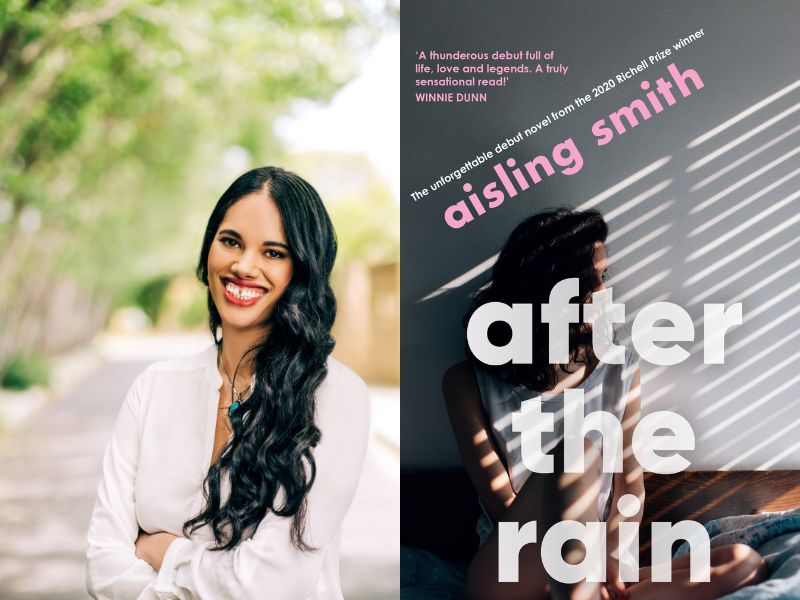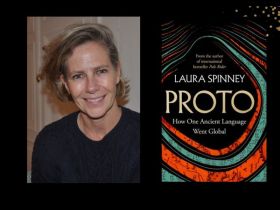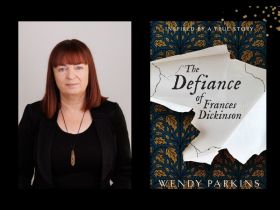Aisling Smith has set out to describe a man through the eyes of three people close to him. That man is Benjamin, a linguist, and the three people are his ex, Malti, a solicitor, and his two daughters Ellery and Verona.
The novel is in three parts. Malti tells her story in 1987. Ellery tells hers as a teenager in the year 2000 and you hear from Verona, also as a teenager, in 2006. In the process the three women reveal much about themselves and their relationships with each other and the broader environment. And gradually you get to know more about Benjamin. But he never gets to speak for himself, and the reader is left to speculate about the man. As a linguist, he may have contributed to better communication. And the novel is so cleverly constructed that the reader subconsciously fills in gaps in the timelines with the musings and memories of the three women.
But while the focus is on Benjamin, this novel is about a whole range of relationships and emotional challenges complicated by the limitations of language. A marriage and divorce and what leads from one to the other affect all members of a family and Smith touches on what that means from different points of view. Malti is an Indo-Fijian immigrant to Australia, experiencing the plight of so many migrants, where the love of an adopted country does not extinguish feelings for one’s origins. And because of her colour she, and also her daughters, have to deal with racial discrimination, which Smith handles with a delicate touch.
As to the two sisters, Ellery and Verona, it has been said that no two siblings have the same parents. Smith’s rendering of Benjamin’s daughters brings that closely to the fore. As an old white man, I found myself at times sympathising with Verona’s Benjamin, whose happy-go-lucky style seems at odds with the view of his former wife and the demands for attention of his older daughter.
Now it’s quite a feat to write a novel that grips your attention from start to finish and yet relies on exploring relationships and feelings. Smith deals with this by providing at times glimpses or even lengthy episodes of day-by-day life, of what happens at work or in the schoolyard or during a holiday outing or even in descriptions of the much-loved Fijian food they enjoy:
‘Their cupboard is full of spices, most of which she gets at the Indian shop in Dandenong: ground ginger, garish turmeric, cardamon pods like teardrops and coriander seeds. Malti still buys most of the spices whole and uses the mortar and pestle where she can.’
After The Rain, Aisling Smith
Aesop the Greek fabulist is attributed with the saying: ‘After the rain cometh the fair weather’. Whether or not the author had Aesop in mind when naming this novel, the phrase conjures up that something better is ahead or is about to happen. So it is not a spoiler to mention that the novel ends with a brief chapter headed ‘coda 2007’. It doesn’t attempt to draw a line under everything and there is nothing illogical or inappropriate about it – just the suggestion of better times ahead. But it isn’t essential to the story and I can’t help wondering if the novel may have been even stronger without it.
Read: Book review: Eta Draconis, Brendan Ritchie
After the Rain is an ambitious novel; that it has succeeded so well is a tribute to the author. All the characters are totally convincing and the voices of the three story-tellers are uniquely their own. Many readers will see bits of their own lives reflected in these pages as they delve deeper into this family’s absorbing intertwined narratives.
After the Rain by Aisling Smith
Publisher: Hachette
ISBN: 978073348793
Paperback: 362pp
RRP: $32.99
Publication: 26 April 2023





